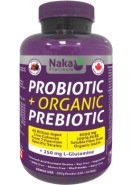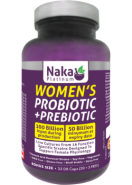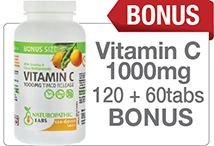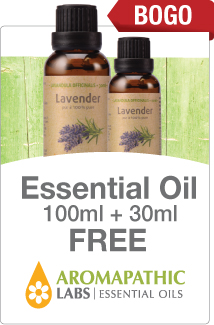Prebiotic Supplements
Prebiotics: Foundation for Digestive Health
Prebiotics are non-digestible fibre compounds that promote the growth of beneficial microorganisms (probiotics) in the intestines. More concretely, prebiotics are non-digestible carbohydrates that serve as food for specific bacteria, such as Lactobacilli and Bifidobacteria, essential to our gut health. Read more >-
 Naka Platinum's Probiotic + Organic Prebiotic contains 45 billion live cultures from 7 different stomach acid resistant strains. This shelf stable probiotic + prebiotic has been formulated to help support intestinal and gastrointestinal health to maintain a healthy digestive system. By promoting a favorable gut flora, Probiotic + Organ...Naka Platinum's Probiotic + Organic Prebiotic contains 45 billion live cultures from 7 different stomach acid resistant strains. This shelf stable probiotic + prebiotic has been formulated to help support intestinal and gastrointestinal health to maintain a healthy digestive system. By promoting a favorable gut flora, Probiotic + Organic Prebiotic may stimulate the growth of healthy bacteria in the intestine and gut while providing gentle relief of constipation or irregularly. [POWDER]+ Earn 40 Reward Points
Naka Platinum's Probiotic + Organic Prebiotic contains 45 billion live cultures from 7 different stomach acid resistant strains. This shelf stable probiotic + prebiotic has been formulated to help support intestinal and gastrointestinal health to maintain a healthy digestive system. By promoting a favorable gut flora, Probiotic + Organ...Naka Platinum's Probiotic + Organic Prebiotic contains 45 billion live cultures from 7 different stomach acid resistant strains. This shelf stable probiotic + prebiotic has been formulated to help support intestinal and gastrointestinal health to maintain a healthy digestive system. By promoting a favorable gut flora, Probiotic + Organic Prebiotic may stimulate the growth of healthy bacteria in the intestine and gut while providing gentle relief of constipation or irregularly. [POWDER]+ Earn 40 Reward PointsSale: $40.99
Reg.: $45.99 (Save $5.00)
In Stock -
 Naka Platinum Women's Probiotic + Prebiotic contains 50 billion minimum live cultures at the the time of expiry from 16 different stomach acid resistant strains specifically chosen to help support female physiology. This shelf stable probiotic + prebiotic has been specially formulated to help support intestinal and gastrointestinal hea...Naka Platinum Women's Probiotic + Prebiotic contains 50 billion minimum live cultures at the the time of expiry from 16 different stomach acid resistant strains specifically chosen to help support female physiology. This shelf stable probiotic + prebiotic has been specially formulated to help support intestinal and gastrointestinal health in women to maintain a healthy digestive system. By promoting a favorable gut flora, Probiotic + Prebiotic may stimulate the growth of healthy bacteria in the intestine and gut while providing gentle relief of constipation or irregularly. [DELAYED RELEASE CAPSULES]+ Earn 44 Reward Points
Naka Platinum Women's Probiotic + Prebiotic contains 50 billion minimum live cultures at the the time of expiry from 16 different stomach acid resistant strains specifically chosen to help support female physiology. This shelf stable probiotic + prebiotic has been specially formulated to help support intestinal and gastrointestinal hea...Naka Platinum Women's Probiotic + Prebiotic contains 50 billion minimum live cultures at the the time of expiry from 16 different stomach acid resistant strains specifically chosen to help support female physiology. This shelf stable probiotic + prebiotic has been specially formulated to help support intestinal and gastrointestinal health in women to maintain a healthy digestive system. By promoting a favorable gut flora, Probiotic + Prebiotic may stimulate the growth of healthy bacteria in the intestine and gut while providing gentle relief of constipation or irregularly. [DELAYED RELEASE CAPSULES]+ Earn 44 Reward PointsSale: $44.99
Reg.: $50.99 (Save $6.00)
In Stock
The Mechanism of Prebiotics in Enhancing Gut Flora
Prebiotics are non-digestible fibre compounds that promote the growth of beneficial microorganisms (probiotics) in the intestines. More concretely, prebiotics are non-digestible carbohydrates that serve as food for specific bacteria, such as Lactobacilli and Bifidobacteria, essential to our gut health.
These probiotic bacteria help maintain the health and diversity of our gut microbiome - or the collective microorganisms that live in our gut. A healthy gut microbiome ensures the proper digestion of food, supports the body’s ability to absorb nutrients, promotes robust immune function, modulates inflammation, supports healthy cognitive function, and helps maintain youthful-looking hair, skin, and nails.
While their names are very similar, it’s important to note that prebiotics are different in every fundamental way from probiotics. Indeed, not only do prebiotics promote the growth and activity of our friendly bacteria, but they also produce Short-Chain Fatty Acids (SCFAs) via fermentation by our healthy gut bacteria. These SCFAs offer myriad benefits to health, including stimulating energy production, preventing the overgrowth of pathogenic bacteria in the gut, reducing inflammation in the colon, strengthening the intestinal barrier, and bolstering our immune function.
Source Your Prebiotic Fibre: Optimize Digestive Wellbeing
Some of the most common prebiotics include:
- Inulin, found in plants such as chicory root, Jerusalem artichoke,
dandelion greens, and garlic. - Fructo-oligosaccharides (FOS), which are naturally present in fruits
and vegetables, including bananas, onions, leeks, and asparagus. - Galacto-oligosaccharides (GOS), which are naturally present in
legumes, such as lentils and chickpeas, as well as in human breast
milk. - Resistant starch, a type of starch that resists digestion in the small
intestine and reaches the colon intact. It is present in foods like unripe
bananas, cooked and cooled potatoes, and whole grains. - Beta-glucan, found in oats and barley and is known for its cholesterol-
lowering effects and immune-enhancing properties. - Pectin is a fibre found in fruits, particularly in the peels and cores of
apples, citrus fruits, and berries. - Psyllium husks, derived from the seeds of the Plantago ovata plant.
Exploring the Digestive Benefits of Prebiotic Supplements
Prebiotic fibres provide several health benefits by stimulating and supporting the growth and activity of probiotic bacteria in the gut. Here are some of the key benefits of prebiotics:
- Improve Digestive Health
- Assist In Weight Management
- Enhance Immune Function
- Help Regulate Hormone Balance & Mood
- Improve Mineral Absorption
- Reduce The Risk of Chronic Diseases
Selecting Your Prebiotic Supplements: A Comprehensive Guide
Prebiotic supplements are available in various forms to cater to different preferences and needs. They come as powders that can be easily mixed with water, juice, or added to smoothies, shakes, or food, as well as in convenient pill form (capsules and tablets) that are easy to swallow with a little water, as well as in chewable gummies for those who do not like having to swallow pills. Prebiotic supplements can also be purchased in liquid form that can be consumed directly or mixed with beverages or foods and in convenient on-the-go prebiotic bars.
Embracing Prebiotics for Long-Term Gut Health
Prebiotics are safe for just about everyone, though it’s important to note that as fibre, increasing your intake too quickly can cause a few unpleasant side effects, including abdominal pain, gas, bloating and diarrhea. The best way to avoid GI side effects is to increase your intake gradually and, in tandem, increase your water intake.
If you suffer from Irritable Bowel Syndrome (IBS), SIBO (small intestinal bacterial overgrowth) or intolerance to FODMAP foods, prebiotics can trigger/aggravate symptoms of these conditions.
Back to Top ↑





















